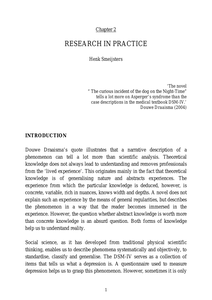Background: A highly promoted opportunity for optimizing healthcare services is to expand the role of nonphysician care providers by care reallocation. Reallocating care from physicians to non-physicians can play an important role in solving systemic healthcare problems such as care delays, hospital overcrowding, long waiting lists, high work pressure and expanding healthcare costs. Dermatological healthcare services, such as the acne care provision, are well suited for exploring the opportunities for care reallocation as many different types of care professionals are involved in the care process. In the Netherlands, acne care is mainly delivered by general practitioners and dermatologists. The Dutch healthcare system also recognizes non-physician care providers, among which dermal therapists and beauticians are the most common professions. However, the role and added value of non-physicians is still unclear. The present study aimed to explore the possibilities for reallocating care to nonphysicians and identify drivers for and barriers to reallocation. Methods: A mixed-method design was used collecting quantitative and qualitative data from representatives of the main 4 Dutch professions providing acne care: dermatologists, GP’s, Dermal therapists and beauticians. Results: A total of 560 questionnaires were completed and 24 semi-structured interviews were conducted. A broad spectrum of non-physician tasks and responsibilities were delineated. Interviewed physicians considered acne as a low-complexity skin condition which made them willing to explore the possibilities for reallocating. A majority of all interviewees saw a key role for non-physicians in counselling and supporting patients during treatment, which they considered an important role for increasing patients’ adherence to proposed treatment regimes, contributing to successful clinical outcome. Also, the amount of time non-physicians spend on patients was experienced as driver for reallocation. Legislation and regulations, uncertainties about the extent of scientific evidence and proper protocols use within the non-physician clinical practice were experienced as barriers influencing the possibilities for reallocation. Conclusions: Delineated roles and drivers demonstrate there is room and potential for reallocation between physicians and non-physicians within acne healthcare, when barriers are adequately addressed.
LINK
The road to science for the arts therapies requires research on the full breadths of the spectrum, from systematic case studies to RCTs. It is important that arts therapists and arts therapeutic researchers reflect on the typical characteristics of each research paradigm, research type and research method and select what is appropriate with regard to the particular research question. Questions rather differ. Finding out whether a certain intervention has a particular effect with a large group of clients differs from wanting to know which change occurs at which moment by which interventions in the treatment of an individual client. Research in practice remains close to questions encountered by arts therapists in their daily practice. It concerns questions arts therapists have about their lived experience of acting due to the complexity and variability of practice. By carrying out research in practice that links up with those questions, evidence evolves; evidence that enables the professional to proceed and that makes explicit what often remains implicit and unsaid. What is explicit can be communicated, can be criticised and tested. The professional himself does the road to science of the profession. The investment in professionals’ research in practice is the motor of knowledge-productivity that bridges the theory-practice gap. Research in the arts therapies should lead to ‘knowledge’ in which the ‘art’, nor the ‘subject’ of therapist and client have been lost.
DOCUMENT

BACKGROUND: Although enhancing physical activity (PA) is important to improve physical and/or cognitive recovery, little is known about PA of patients admitted to an inpatient rehabilitation setting. Therefore, this study assessed the quantity, nature and context of inpatients PA admitted to a rehabilitation center. METHODOLOGY/PRINICIPAL FINDINGS: Prospective observational study using accelerometry & behavioral mapping. PA of patients admitted to inpatient rehabilitation was measured during one day between 7.00-22.00 by means of 3d-accelerometery (Activ8; percentage of sedentary/active time, number of sedentary/active bouts (continuous period of ≥1 minute), and active/sedentary bout lengths and behavioral mapping. Behavioral mapping consisted of observations (every 20 minutes) to assess: type of activity, body position, social context and physical location. Descriptive statistics were used to describe PA on group and individual level. At median the 15 patients spent 81% (IQR 74%-85%) being sedentary. Patients were most sedentary in the evening (maximum sedentary bout length minutes of 69 (IQR 54-95)). During 54% (IQR 50%-61%) of the observations patients were alone) and in their room (median 50% (IQR 45%-59%)), but individual patterns varied widely. CONCLUSION/SIGNIFICANCE: The results of this study enable a deeper understanding of the daily PA patterns of patients admitted for inpatient rehabilitation treatment. PA patterns of patients differ in both quantity, day structure, social and environmental contexts. This supports the need for individualized strategies to support PA behavior during inpatient rehabilitation treatment.
DOCUMENT
